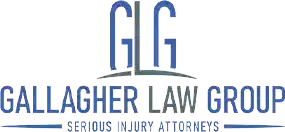You have been hurt in an accident. Medical bills pile up. You pursue a lawsuit or settlement against the at‑fault party. Then you get a shock: your health insurer says you must “pay them back” from your settlement. Is that legal? Will the insurance company drain your recovery?
As your Phoenix personal injury lawyer, we at GLG Personal Injury Lawyers want you to understand how health insurance repayment works, when it is enforced, and how we protect you. In this article, we explain how repayment (also known as “subrogation” or “liens”) works in Arizona, including when insurers have the right to recover, when they do not, and how your settlement is affected.
This is vital knowledge for anyone filing an accident claim.
Why This Question Matters to Injury Victims
Picture this: you agree to a settlement or obtain a judgment of $100,000 for your injuries. But before you see a dime, your health insurance company demands $20,000, claiming it paid your medical care and now must be reimbursed. That can feel unfair. You already paid premiums. Yet the contract you signed with your insurer often includes language giving them the right to recoup payments made on your behalf.
Because many injured people do not realize this possibility, they may accept a deal without considering this deduction. The result: less money for your hardship, lost wages, pain and suffering, and future care. As your Phoenix injury attorney, we fight so that you keep as much as possible of your settlement.
Health Insurance, Subrogation, and Liens: What’s the Difference?
Understanding terminology is key. Two related legal concepts often lead to repayment demands:
-
Subrogation is when your health insurer “steps into your shoes” after paying your medical bills to pursue recovery from the at‑fault party. Essentially, the insurer claims the benefit you otherwise had.
-
Liens are legal claims on your settlement or judgment. A lien holder (for example, a hospital, health plan, or provider) demands payment from your recovery before you receive your share.
In many cases, your health insurer may assert a subrogation claim or lien, so that, before you receive your portion, they recover the amount they spent on treatment.
Arizona’s Special Rules: “Anti‑Subrogation State” and Hospital Liens
Arizona approaches the issue differently from many states. In fact, it is often considered an anti‑subrogation state. That means that, by default, your private health insurance generally does not have an automatic right to reimbursement, unless the contract explicitly allows it.
Here’s how this plays out:
Hospital/Provider Liens
Hospitals and medical providers in Arizona can file liens (as per A.R.S. § 33‑931 to 33‑936) if they treat accident victims and are not paid. These liens may attach to any settlement or judgment from a personal injury claim.
To be a valid lien in Arizona:
-
The provider must follow the statutory requirements, including filing in the appropriate county with specific information (patient name, date of service, amount claimed).
-
The medical services must be connected to the injury caused by a third party’s negligence (not unrelated or elective treatments).
-
The provider may only recover “reasonable and customary” charges; inflated bills are challengeable.
These liens often reduce what you receive. Your attorney can negotiate lien reductions or even invalidate improperly recorded liens.
Health Insurance Subrogation Under Contract
Because Arizona is anti‑subrogation, your private health insurer cannot assume a right to repayment unless your policy contract gives them that right.
If your policy permits subrogation, the insurer can assert a claim for reimbursement from your settlement or judgment, but only to the extent permitted by your contract and applicable law.
Some health insurers aggressively assert subrogation claims, but those claims are negotiable, often inflated, and may be reduced.
Exceptions: Medicare, AHCCCS, and Government Programs
Government payers, such as Medicare or Arizona’s Medicaid (known as AHCCCS), have special rules. Under federal law, Medicare, Medicaid, and other public health programs generally have a statutory right to repayment from your personal injury recovery.
In Arizona, a court decision (Ansley v. Banner Health) held that hospitals may not place liens on AHCCCS‑paid care that exceed what AHCCCS already accepted as full payment. That means in some cases, balance billing or extra liens may be invalid.
Additionally, regarding Medicare, Arizona law and federal rules require that Medicare be notified before settlement, and the amount owed must be determined so that parties can set aside funds to satisfy that obligation.
When Health Insurance Does Get Paid Back (and When It Does Not)
From the above rules, here are scenarios in which your health insurer might get repayment — and when they might not.
| Scenario | Repayment Likely? | What to Watch Out For |
|---|---|---|
| Your private health plan has explicit subrogation language | Yes, insurer may demand reimbursement | The insurer’s demand should be scrutinized and negotiated |
| Provider (hospital, clinic) files a statutory medical lien | Yes, if valid and properly filed | Your attorney can challenge or reduce the lien |
| Policy has no subrogation clause and state prohibits recovery | No | The insurer may try to assert it, but you can resist |
| Treatment paid by government health program (Medicare, AHCCCS) | Yes, by law | Must follow federal repayment rules and court procedures |
| Insurance claims repayment beyond “reasonable and customary” charges | Disputable | Your lawyer may challenge inflated or unsupported amounts |
In some instances, liens by providers are not allowed to attach to certain types of insurance. For example, a valid hospital lien might not apply to your underinsured motorist (UIM) coverage in Arizona.
How This Affects Your Settlement: Strategic Considerations
Knowing that repayment demands may reduce your take-home amount, your accident attorney in Phoenix, AZ, will incorporate smart tactics:
-
Identify all potential lien and subrogation claims early. We must know who may demand reimbursement before settlement discussions begin.
-
Require proof and calculation of the claimed lien. The insurer or provider must demonstrate how they calculated the amount and that it is accurate.
-
Negotiate reductions or dismissals. Many liens are overblown or flawed; we advocate for reductions to ensure you do not overpay.
-
Allocate settlement portions appropriately. Some portions of your recovery may be structured to avoid triggering repayment (for example, separating damages for non‑medical losses).
-
Set aside funds for Medicare or government obligations. If federal programs are involved, the settlement must reserve the proper amount to satisfy their lien.
-
Protect your rights in the release. Ensure that your settlement release does not inadvertently waive your right to dispute subrogation demands.
At GLG Personal Injury Lawyers, our goal is to minimize the repayment demands as much as possible from your award. We will fight aggressively on your behalf so that you receive what you deserve.
Real‑Life Example: What You Might Owe
Let us imagine a scenario in Phoenix:
You are in a car crash on Interstate 17. You incur $40,000 in medical bills. Your health insurer pays $30,000, your deductible, and co‑pays covering the rest. You sue the at‑fault driver and settle for $150,000.
-
Your insurer submits a subrogation claim for $30,000 (the amount it paid).
-
A hospital files a statutory lien for $5,000 (representing unpaid charges).
-
Medicare is not involved (since you are under 65), and you are not on AHCCCS.
Because Arizona is anti‑subrogation, your insurer’s right to repayment depends on the policy contract. You and your attorney may negotiate the subrogation demand down to, say, $20,000. The hospital lien may also be reduced to $3,000.
After reductions, total payments to these lienholders might be $23,000. Subtract that from $150,000, leaving $127,000. From that, your attorney fees, court costs, and expenses are deducted. That is your final check.
If your attorney does not push back, the insurer might insist on $30,000, the hospital liens might remain at full value, and you could lose much more of your recovery. That is precisely what we prevent as your Phoenix injury attorney.
Why Hiring a Phoenix Personal Injury Lawyer Matters
Without skilled legal representation, you risk accepting a deal that leaves you with little. A knowledgeable accident attorney in Phoenix, AZ will:
-
Track and negotiate subrogation demands
-
Investigate whether liens are valid and properly perfected
-
Handle Medicare or AHCCCS obligations
-
Allocate your settlement to minimize your exposure
-
Argue for reductions of claims that are excessive
-
Ensure you receive your rightful net recovery
At GLG Personal Injury Lawyers, we treat our clients like family. We combine empathy with fierce advocacy because we understand that your settlement is more than just money; it is your future.
Steps You Should Take If You Are Injured
-
Inform your medical providers and insurer that your treatment is a result of an accident involving a third party.
-
Do not sign any lien agreement or release without consulting a qualified personal injury attorney.
-
Share your health insurance policy with your attorney so they can analyze subrogation rights.
-
Demand lien payoff statements and require proofs before accepting settlement.
-
Negotiate before settlement to reduce or eliminate subrogation and liens.
-
Confirm that Medicare or AHCCCS obligations are satisfied before the final release.
By proactively addressing these issues, you can preserve a greater portion of your award and avoid unpleasant surprises at closing.
We Help Protect Your Rights
Does health insurance get reimbursed after an injury settlement? The answer is: sometimes. Whether your insurer can demand repayment depends on the language in your policy (specifically, your subrogation rights), Arizona law (which generally disfavors subrogation), and whether the providers have liens. Government health programs have their own statutory repayment rights that must be obeyed.
As your trusted Phoenix personal injury lawyer, we at GLG Personal Injury Lawyers will fight to minimize repayment demands, protect your net recovery, and guide you through every stage of the process. If you or a loved one has been injured, contact us for a free consultation, we stand ready to help you rebuild.
Call GLG at (602) 922‑7642 or visit our Phoenix office to begin securing justice.



